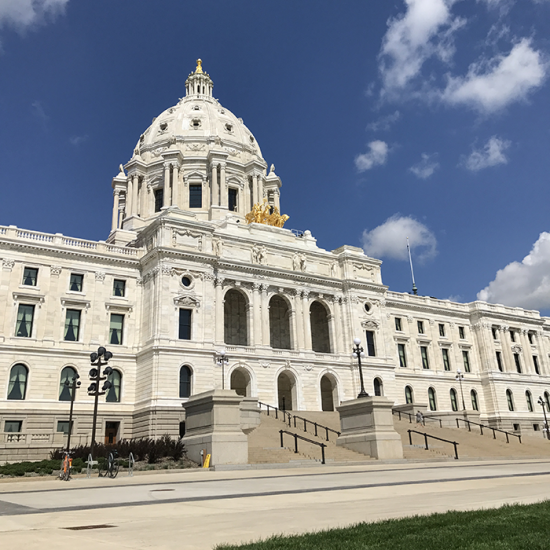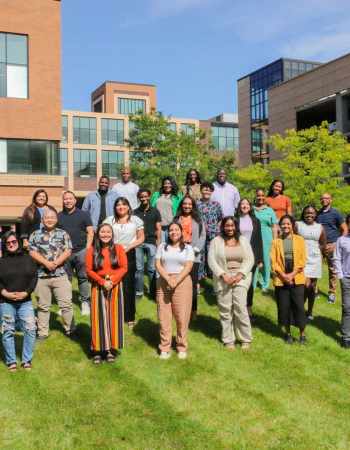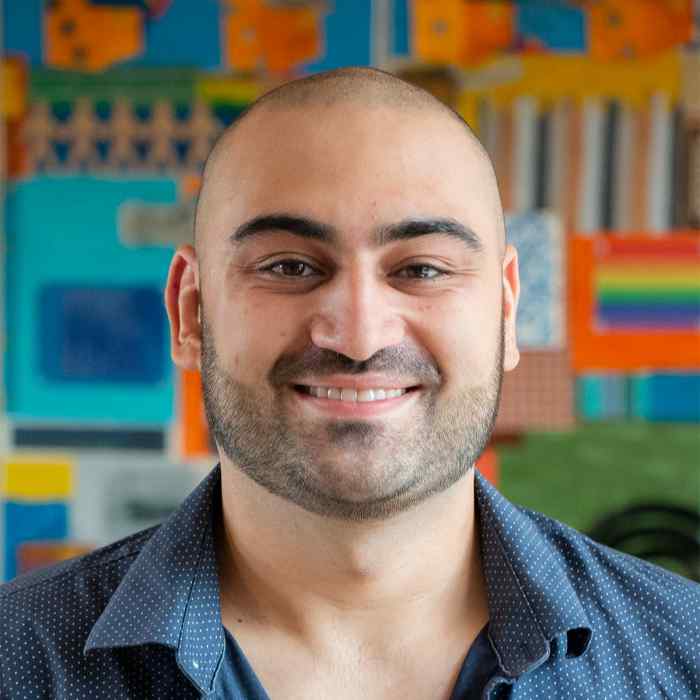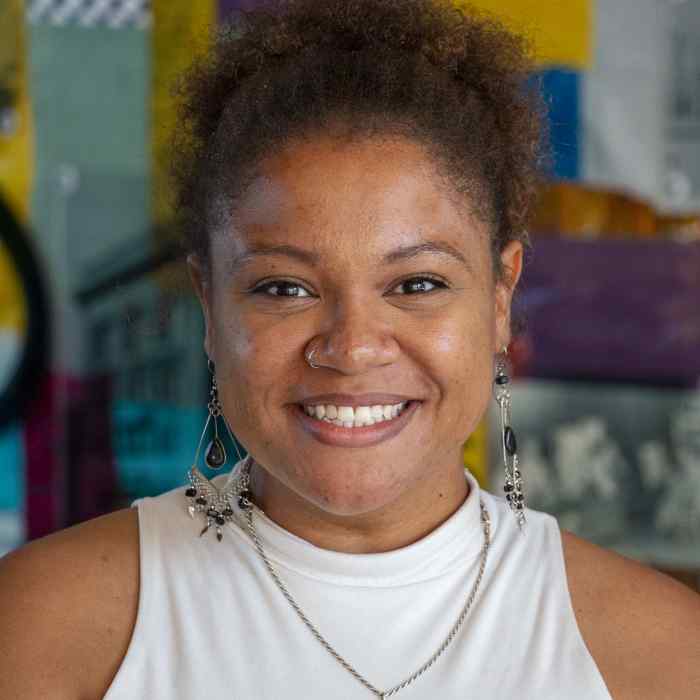
Public Policy
Advocating for systemic equity and opportunities so all Minnesotans thrive
Wilder's public policy work advances systemic equity and social and economic opportunities so that everyone throughout Minnesota can thrive. Our efforts have a special emphasis on supporting and strengthening the self-advocacy of people, families and communities who would be directly impacted by certain budget and policy proposals. We work closely with many nonprofit partners in coalition on a range of issues related to Wilder's mission.
Wilder’s policy priorities and yearly agendas respond to the context of the moment, but remain focused on the social and economic opportunities of our community. Our primary issue areas include health care, housing, mental health, aging, and other areas of critical importance in advancing Wilder’s mission.
Public Policy Agenda & Updates
Wilder is a collective force for social good that works to see all people thrive.
We champion stability and wellness through direct services, advocacy, and research. We understand that society has created advantages for certain groups and not others; we find ways to see and change how we make decisions that impact marginalized or disadvantaged groups in unintended ways.
Wilder welcomes the complexity that comes from the many differences that exist among groups in one place: race, ethnicity, class, sexual orientation, ability, gender, nationality, etc. We believe diversity adds value and makes us stronger.
Informed by these values and principles, along with guidance from our client and staff communities, this legislative agenda reflects Wilder’s commitment to Lead, Support, Monitor and Endorse with efforts that promote the social welfare of our community.
LEADING PARTNER
Addressing the Benefits Cliff: Understanding the need for holistic and intersectional policy change that will support the whole family, Wilder will work to address the "cliff effect" throughout the state.
- Streamline Service Application Processes - Applying for services that one is eligible for shouldn’t be a full-time job, streamlining services will allow families to focus on solutions and long-term stability.
- Align & Simplify Eligibility Requirements for Services - Navigating uncoordinated requirements for assistance is time-intensive and complicated. Enrollment in certain benefits can lead to the unintentional disenrollment of others. Whenever possible, the state should align service requirements for public service programs like CCAP, SNAP, MA, MFIP, DWP, etc... as well as city and county services.
- Community Navigators - Wilder will also lead policy efforts to integrate community navigators into their respective systems and increase their ability to continue connecting people with available services.
- Increase Use of Presumptive Eligibility & Continuous Eligibility Models Every year, families who qualify for benefits are dropped from vital services because they failed to confirm that they remained qualified. Minnesota should shift to presumptive eligibility models wherever possible.
- Reevaluate Asset Limits - Asset limits disincentivize professional advancement, transitions to employment, ownership of vehicles & the practice of maintaining a savings account. Failure to desist from the actions listed above put families at risk of ineligibility for critical benefits. Increasing, removing, and modifying timelines for asset limit reporting allows for asset development without affecting the receipt of vital services like TANF, SNAP, MA, MA-EPD, Housing Support, etc.
- Flexible Income for Families - Programs like Rai$e allow families to utilize assistance in a way that best supports their needs and puts into action our Whole Families principles and values. Wilder worked with partners in 2023 to introduce the MN Basic Income Grant Program and will continue advancing this bill during the 2024 legislative session.
- Sustainable Support for the Minnesota Homeless Study Understanding the varied experiences of homelessness is critical to eliminating it. Wilder seeks sustainable public support so that Wilder Research can amplify the impact of the tri-annual study that quantifies homelessness and provides a narrative for those living it.
SUPPORTING PARTNER
Wilder will work to sustain and grow the positive impact of Wilder programming through legislation that promotes:
- Affordable Childcare Access Wilder will support efforts to improve access to quality and affordable childcare.
- Safe Schools Wilder will work to enhance safety for kids and adults in schools throughout Minnesota, focusing on St. Paul and Intermediate School District 287 schools.
- Healthcare Workforce Wilder will work with its statewide partners to address the critical workforce crisis by implementing practical solutions to ensure that our healthcare workforce, particularly home and community-based services, have the needed resources to provide quality care for all.
- Align Mental Health Service Regulations Aligning service regulations will increase access to services that allow mental health experts to focus on quality service delivery.
- Healthy Aging As a member of the Minnesota Leadership Council on Aging, Wilder supports making Minnesota the best state for healthy aging for people of all ages.
Wilder will work on legislation in partnership with various coalitions and networks that lead to:
- Stable & Accessible Public Health Care Programs By promoting the agendas of the This is Medicaid Coalition and the Mental Health Legislative Network.
- Improved Access to Affordable Housing Advances the agenda of the Homes for All Coalition.
- Prevents Homelessness Supporting the Minnesota Coalition for the Homeless and its agenda.
- Quality Intergenerational Services Through our work in the Education Partnership Coalition, Aspire Network, and the Minnesota Leadership Council on Aging.
MONITOR & ENGAGE (Endorse or Oppose)
Wilder will consider endorsing or opposing proposals in accordance with the organization’s mission, vision and vision. Issue areas Wilder is monitoring include but are not limited to:
- Racial Equity & Anti-Discrimination Initiatives
- Enhancing Tenant Protections
- Culturally Specific/Relevant Approaches to Social Services
- Efforts to Address Food Insecurities for Children and Adults
- Closing the Opportunity Gap
- St. Paul Revitalization
- Criminal Justice System Reforms
- Community Safety, Health and Wellbeing
- Opportunities for Wilder Program Sustainability and Innovation
Working with Partners in Community
We are stronger when we work together. This is why Wilder convenes and participates in these statewide coalitions, along with many others.
Building BIPOC Power & Voice in Public Policy

Community Equity Programming
A catalyst for transformative change, empowering community members to lead, advocate, and reimagine Minnesota’s legislative landscape.

Meet the Changemakers of Community Equity Program
Policy Pro Corner
Check out tips, strategies or resources that will help you to improve your policy and advocacy skills. You can find them all here as we continue to add more with each public policy update.
Tip #1: Know who represents you.
There are new elected officials in the state legislature, on county boards and in city governments. Knowing who to reach out to, is the first step in engaging. Look up who represents you at the following links:
Tip #2: Seek out alternative points of view.
In our era of heightened divisions and easily located echo chambers this can be a difficult and unappetizing task. The point of this isn’t necessarily to change your mind on an issue.
Reading an article about how and why people view an issue differently than you can help to clarify how to refine your position or approach to convince undecided people. To be clear, this only applies to good faith disagreements that are based in reality and not craven attempts to sow division.
Tip #3: Never be afraid to say “I Don’t Know.”
There will be times during your advocacy where you get a question that you don’t know the answer or due to nerves you forget the answer. It happens to everyone. The worst thing you can do is to lie and make up an answer, it will eventually come out.
The best option is to say something to the effect of “I don’t know the answer to that, but I will follow-up with you to get you an answer.” Extra Tip: if you say you are going to follow up, then you need to follow up.
Tip #4: Create space for restoration and joy aka be kind to yourself.
Often times when we engage in policymaking work, we are focusing on issues that we care deeply about like access to basic needs or reforms to the systems that oppress us. Because of the gravity of these issues, it can be tough to convince yourself that taking a break is acceptable, but if you don’t make space to heal yourself, you will burn out. Here are a few things you can do to help remind yourself that it’s okay to take time for yourself:
- Find a co-conspirator that you can work with to look out for each other
- Create dedicated time on your calendar for something that brings you joy…and don’t cancel it
- Celebrate when you get a win, even if it’s not the end of your journey
Tip #5: Do your best to learn the process or make a friend who knows it.
Most policymaking bodies from a neighborhood association to congress have rules and practices that shape their work, and most of the time they are unclear and confusing. Most of the time there isn’t a Schoolhouse Rock video to explain the process and missing a small step can set you back weeks or months.
Always try your best to understand all of the steps needed to pass a bill or ordinance or have someone in your community who can help answer questions. I would suggest starting with your elected official with your questions. If you’re someone who understands these processes, you should share this information freely!
Tip # 6: Lean forward and be comfortable not knowing everything.
Don’t know everything? Guess what, no one does! Your experiences, knowledge, and passion are valuable and important for lawmakers to hear. The Capitol can feel like an intimidating space and it’s common for people (especially from marginalized communities) to feel unqualified to share their valuable thoughts and expertise. (You have expertise in something valuable that others don’t!)
When you feel intimidated, think of the world we live in. Lawmakers and regulars at the Capitol certainly have their areas of expertise, but if there aren't gaps of knowledge, expertise, and perspectives at the Capitol, then why aren’t things better than they are? Empower yourself and your community to engage in the policymaking process. You don’t need to know everything to make an impact!
Voter Information and Resources
About Wilder Public Policy
Our Approach to Public Policy
Wilder’s public policy efforts advance social and economic opportunities so that communities we serve—and communities throughout Minnesota—can thrive.
- We endorse and advocate for policies that will have these outcomes for low-income people in Saint Paul, the East Metro and across Minnesota.
- We support and strengthen advocacy capacity of low income residents, people of color and indigenous leaders to influence legislative decision making and improve people's lives.
- We leverage Wilder’s expertise and resources to support coalitions that advance our priorities.
Michelle Koffa Dormoh
Community Equity Program Manager
Adrián Rafael Magaña
Director of Public Policy & Community Relations
Mikayla Smith
Public Policy and Community Relations Manager
The best ideas come when more voices are included in the process.
Check out Wilder's Community Engaged Public Policy Development process (CEPPD) that seeks to improve community engagement in public policy development.


